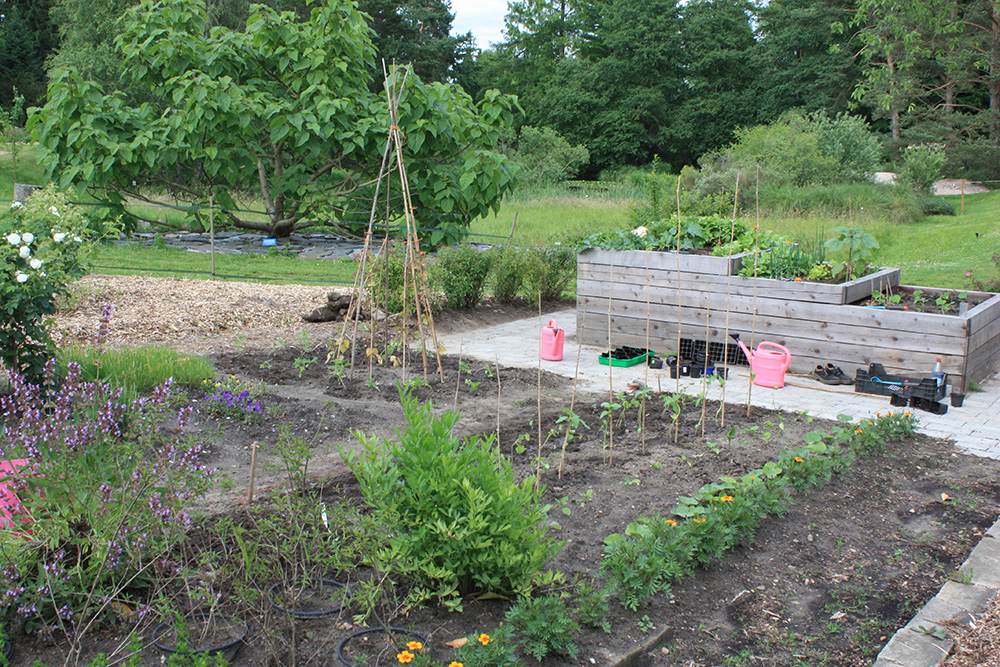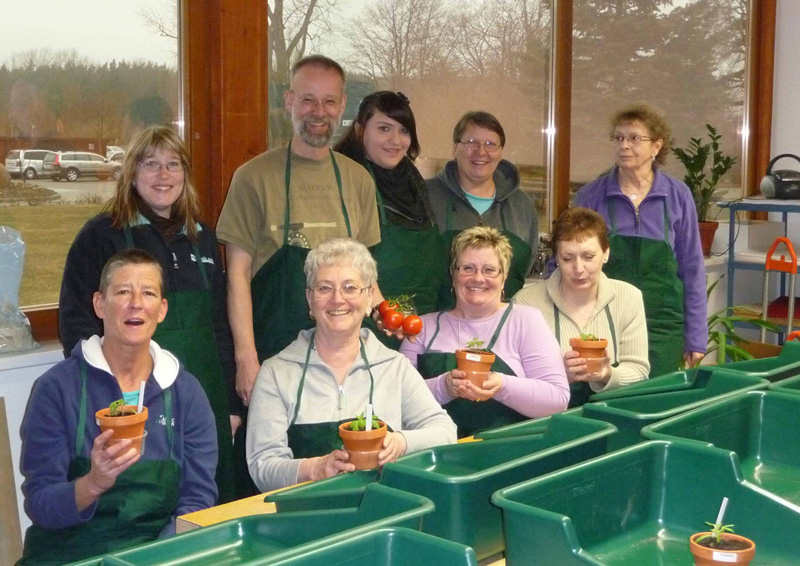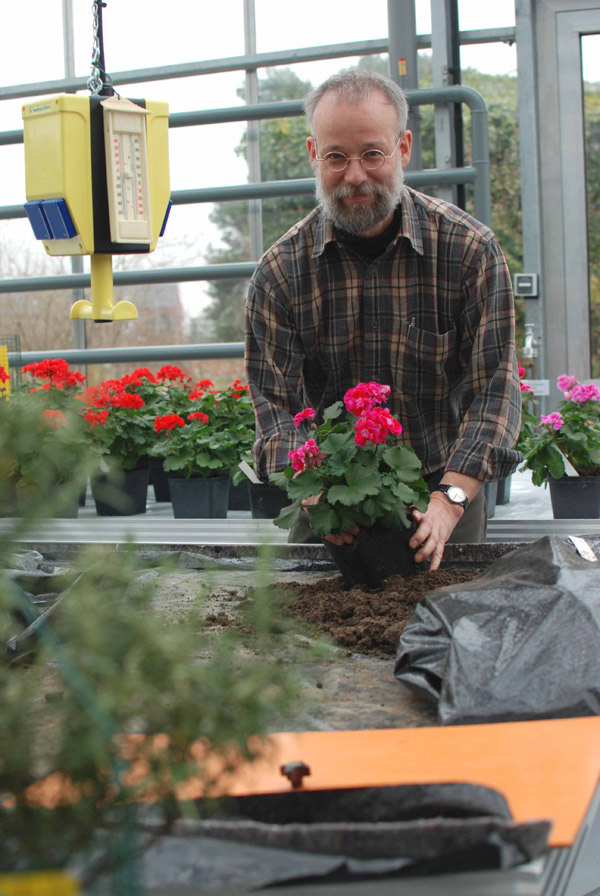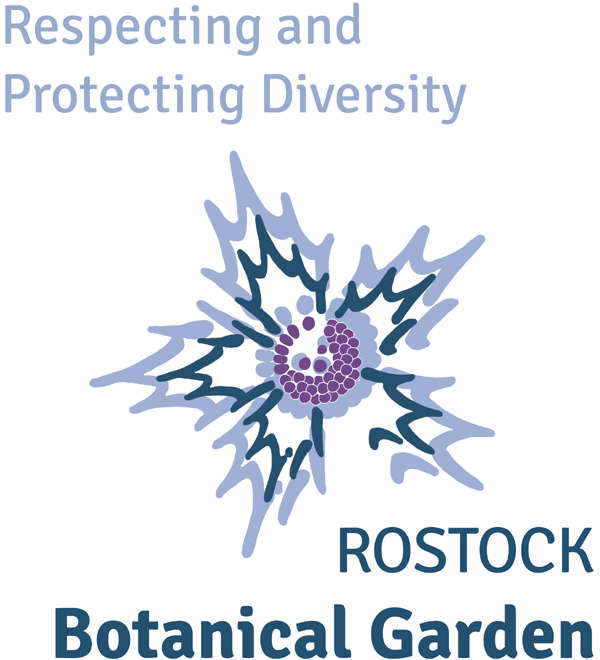Therapeutic Gardening Project
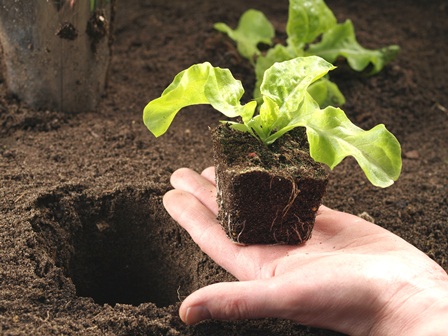
During the years 2013–16, the certificate course Garden & Health – Garden Therapy was offered in cooperation with the Rostock Botanical Garden and with support of the Vocational School for Agricultural Economics of the State of Mecklenburg-West Pomerania "Johann Heinrich von Thünen". The certificate course had been developed in the KOSMOS project at the University of Rostock and extends over four semesters. The teaching comprised a combination of attendance and web-based training, and self-learning. The curriculum had been designed by university lecturers and practitioners from the fields involved. Currently the course can only be taken in its variant Open Online Course Garden Therapy. At the same time the Practice for Garden Therapy Thomas Henschel is developing a garden therapy concept along with the University of Rostock Botanical Garden, which focuses on the positive effects of gardening for the body, mind, and soul.
Garden therapy is essentially the conscious participation of clients and patients in gardening activities. The expected benefits, like stimulation of body functions and better concentration and communication abilities, will be planned in a therapy concept based on the diagnosis of any given individual. Garden therapy is conceived and carried out by a specialist trained in gardening and garden therapy who works in close cooperation with nurses, educators, therapists, and social workers. At present, the therapy offering is also brought as “mobile garden therapy” from the Botanical Garden to institutions of medical treatment and elderly care where it is practiced indoors.
Philosophy
Gardening is on the one hand dependant on the natural conditions, and on the other is a deliberate engagement in the complex process of the human environment. With a garden, one can create a space that allows for safety, order, and culture. Thus, the gardening activity represents in a pronounced manner the position of humans in the general context of the world. Gardening activities enable the body, mind, and soul of the human being, capture the dimensions of space and time, and bring people into a relationship with the greater society. Gardening brings people into contact with growth and change.
Areas of Use
Through the variety of gardening tasks and the multitude of different plant species, garden therapy is applicable to helping people in a wide range of situations.
Preventative Care and Health Promotion
Those who work regularly in their own garden can confirm the positive health effects of gardening. Regular physical activity in the fresh air, the contact with soil, water, and other living organisms, in addition to an intense relationship with the being, growing, ripening, and decay in nature strengthen both body and mind. Gardening is also a great means to fight stress.
Elderly Care
In elderly care facilities, residents and patients require frequent cognitive motor-sensory stimulation. Garden therapy provides differerent levels of physical activity and of stimulation of the mind and soul, and is thus an approved means of holistic activity. As a group activity, garden therapy can be an uncomplicated way to stimulate social contact. Many patients with dementia or Alzheimer’s react with all of their senses to gardening activities, plants and soil, which can help to stimulate deeper levels of memory.
Psychiatry
Dealing with living organisms and the almost playful approach to the elementary processes of growth and decay makes garden therapy an option for successful psychotherapeutic intervention. Depending on the goal of the therapy patient, both active, and relaxing settings can be planned.
Medicinal and Work Rehabilitation
Sometimes with conventional therapy it is difficult to obtain a satisfactory result if there is a complex health situation of a patient. Follow-up treatment often involves a gradual increase of in intensity of therapeutic stimulation, with the goal of being able to eventually lead an independent life after having recoverd from a disease or despite remaining health impairments. Garden therapy is also helpful in dementia care, use of working with disabled people, social work, child and youth work as well as help for addictions.
Contact
Praxis für Gartentherapie
Dipl.-Ing. Thomas Henschel
Stephanstrasse 11
18055 Rostock
Phone 0381/2523822
Fax 0381/2523991
Email: thomas.henschel(at)gartentherapie-mv.de
www.gartentherapie-mv.de
Thomas Henschel is gardener and landscape architect and attended an extra-occupational course for expert in garden therapy at the University of Agrarian and Environmental Pedagogy, Vienna, from 2009 to 2011.

